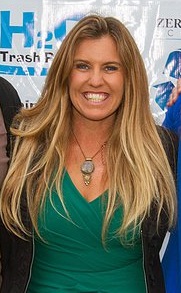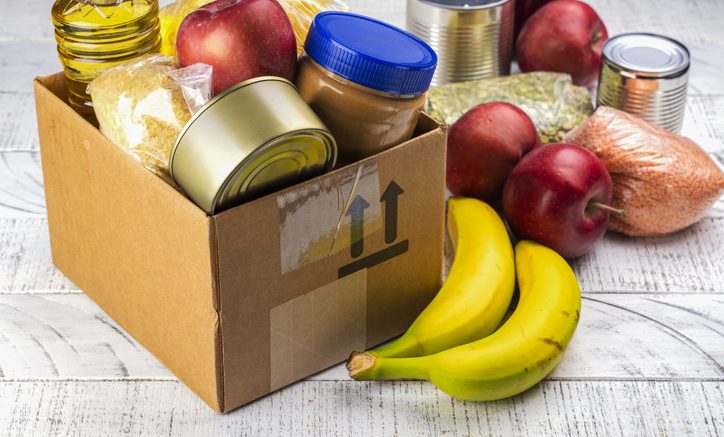Remember when your mother told you to clean your plate? She was worried about your nutrition, but we now know wasting food is a serious environmental hazard. Organic waste—mostly uneaten food—currently going to landfills produces large amounts of methane, a greenhouse gas 28 times as potent as carbon dioxide and a major contributor to climate change. Also, of course, the energy and water used to produce this food, which carries its own carbon footprint, is wasted as well. Also—back to your mother’s concern—there are hungry people who could be given that food.

Environmental officer
City of Oceanside
In 2016, California passed SB 1383 into law, with the goal of reducing organic waste in landfills by 75% and increasing the rescue of still-edible food by 20%. January 1, 2022 was a significant date in terms of the bill’s implementation and projected reduction measures, so we sat down with Colleen Foster, environmental officer for the City of Oceanside, to find out how it’s going.
What are some of the first steps you’ve done for implementing 1383 in Oceanside?
First step, we set up a system for waste prevention and edible food recovery. We built infrastructures through the city’s Green Oceanside Kitchen, which resulted in increased edible food recovery during the pandemic. We then rolled out services to our commercial base. The commercial sector produces the majority of organics in the waste stream, so we prioritized our limited services and resources to commercial food scraps recycling. Since the start of the pandemic, and in compliance with state law, we’ve rolled out services to the majority of our commercial customers. Next, we’re rolling out services to multi-family—and then residential is the final group.
What are the challenges going into the next level of implementation?
The (major) challenge going into the next level of implementation is finishing rolling out services for every customer…(including) customers who do not want these services or feel like they shouldn’t have to participate—(because) there is no exemption available to them in SB 1383 state law. That’s the challenge. Another challenge is the increasing cost to provide these services, and the need to update our franchise agreement to be able to provide not only the services, but comply with the prescriptive nature of the regulation. This requires significant education, significant monitoring, record-keeping, new requirements on procurement that the industry is not prepared for. And then ultimately, the industry will be required to turn into enforcement entities rather than technical assistance entities.
“We adopted a new franchise agreement to be fully compliant with state law, SB 1383 in particular. The City of Oceanside has taken significant efforts to develop local infrastructure and services that not only meet its zero waste goals and state regulation, but do it in a manner that is supportive and effective for our ratepayers.”
Colleen Foster, environmental officer for the City of Oceanside
As an unfunded mandate, what do you think the cost for Oceanside to implement SB 1383 will be overall?
Well, I don’t have to answer that with what I think. We adopted a new franchise agreement to be fully compliant with state law, SB 1383 in particular. The City of Oceanside has taken significant efforts to develop local infrastructure and services that not only meet its zero waste goals and state regulation, but do it in a manner that is supportive and effective for our ratepayers. That agreement is resulting in an increase of approximately 35-40% across our customer rate base by 2024. It’s the most significant rate increase our residents and our commercial customers have seen.
So if 1383 is a work in progress, what recommendations do you have to make it better?
First of all, I want to say that I professionally—and also the City of Oceanside—support the goals of 1383, as our City is an early adopter of Zero Waste, with a robust recycling program that has already achieved over 70% diversion. It’s important to divert materials. Zero waste is important. Climate action, the mitigation of greenhouse gas emissions across the state of California, is critical, and changing the way we consume materials and manage organics is critical.
However, I think this needs to be done in a way in which jurisdictions have independence on how they implement these programs and these services. There needs to be funding dedicated towards the implementation of these services and programming, and that funding needs to be ongoing. CalRecycle needs to be supportive in its oversight of the regulation so that jurisdictions that need help, which they do right now, can actually receive that help and support from CalRecycle.
The regulation shouldn’t be entirely on the backs of jurisdictions. The state should hold greater responsibility in working with corporate customers for compliance. The state should take on greater responsibility in supporting jurisdictions to identify markets for compost, mulch and energy.
The regulation does need reform. The procurement targets are excessive, unfunded and extremely difficult, and the industry is not even close to meeting those procurement targets. The regulation needs to take into consideration the potential adverse consequences of moving our material across the state simply because there’s a lack of infrastructure within a local region. We’re seeing cities now that have to truck their material hours away just to comply with this regulation, rather than giving those cities the time needed to develop local infrastructure and prioritizing funding to support the development of local infrastructure.
And now, just for fun: Ice cream cake or pie?
A slice of pie is always a good day!
Are you a dog, cat or snake person?
Dog, definitely.
What celebrity would play you in a movie about your life?
I’m my own celebrity. Who has the time to be someone other than yourself?






Be the first to comment on "Colleen Foster of Oceanside’s Solid Waste & Recycling department discusses the significant challenges in implementing a law to reduce the state’s landfills"